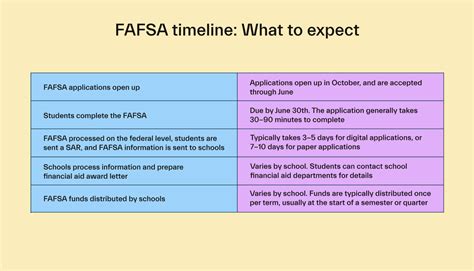Navigating the complex process of applying for federal financial aid can be daunting, especially when you’re facing lengthy delays. The Free Application for Federal Student Aid (FAFSA), the gateway to financial assistance for college students, has experienced prolonged processing times in recent years. Understanding the reasons behind these delays is crucial to mitigating the impact on your college plans.

Overwhelmed Processing System
The surge in applications has overwhelmed the FAFSA processing system. The number of FAFSA applicants has grown steadily in recent years, with over 19 million submissions for the 2021-2022 academic year alone. The sheer volume of applications has resulted in processing backlogs, causing lengthy delays for applicants.
Complex Verification Process
FAFSA verification is a critical step in preventing fraud and ensuring the accuracy of award calculations. However, this process can be time-consuming and complex. Applicants may need to provide additional documentation to verify their tax information, citizenship, residency status, and other details. The verification process can add several weeks or even months to the processing timeline.
Impact of the Pandemic
The COVID-19 pandemic has exacerbated the processing delays. The disruption to regular operations and the implementation of remote work arrangements for FAFSA processors have contributed to the backlog. Additionally, the pandemic has led to an increase in the number of applicants seeking financial assistance, further straining the processing system.
Insufficient Staffing
The FAFSA processing team has been understaffed for years. The high turnover rate and the difficulty in recruiting and retaining qualified staff have resulted in a shortage of processors. The understaffing issue has hindered the system’s ability to keep up with the growing demand for financial aid.
Consequences of Processing Delays
The prolonged processing times can have significant consequences for students and their families:
- Delayed Enrollment: Students may be unable to enroll in classes on time or may have to reduce their course load due to a lack of financial aid.
- Increased Stress: The uncertainty and financial anxiety associated with FAFSA delays can take a toll on students’ mental well-being.
- Housing and Meal Insecurity: Students who rely on financial aid for housing and meals may face eviction or food insecurity while waiting for their applications to be processed.
- Higher Loan Debt: Students who do not receive financial aid may be forced to take on more student loans, which can increase their long-term indebtedness.
Strategies to Mitigate Processing Delays
While the FAFSA processing delays can be frustrating, there are steps you can take to mitigate their impact:
- Submit Your Application Early: Submit your FAFSA as early as possible to allow ample time for processing. The priority filing date for most states is October 1st.
- Be Accurate and Complete: Ensure that your FAFSA application is accurate and complete to avoid delays from errors or missing information.
- Monitor Your Application Status: Regularly check the status of your FAFSA application online or through your college’s financial aid office.
- Contact Your Financial Aid Office: If your application has been delayed significantly, contact your college’s financial aid office for assistance. They may be able to provide updates or help you resolve any issues.
- Explore Alternative Funding Sources: In case of prolonged delays, consider exploring alternative funding sources such as scholarships, grants, or private loans.
Recommendations for Improvement
To address the challenges faced by the FAFSA processing system, several recommendations for improvement have been proposed:
- Increase Staffing: The government should invest in increasing the FAFSA processing staff to reduce backlogs and improve efficiency.
- Simplify Verification Process: The FAFSA verification process should be streamlined and simplified to reduce the burden on applicants and processing staff.
- Implement Technology Updates: The FAFSA system should be modernized with automated processing technologies and self-service options to improve efficiency and reduce delays.
- Raise Awareness: Public awareness campaigns should be conducted to educate students and families about FAFSA deadlines and processing timelines.
Conclusion
The FAFSA processing delays are a systemic issue that has persisted for years. The surge in applications, complex verification process, pandemic disruptions, and insufficient staffing have all contributed to these delays. While processing times have improved recently, there is still room for improvement. By taking proactive steps, exploring alternative funding sources, and advocating for system improvements, we can mitigate the impact of FAFSA delays and ensure equitable access to financial aid for all students.
